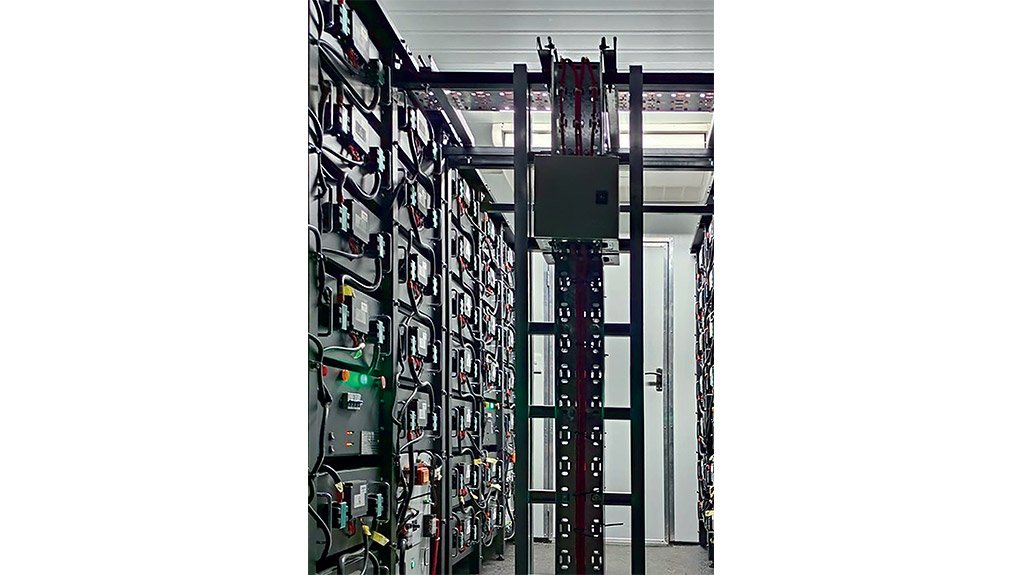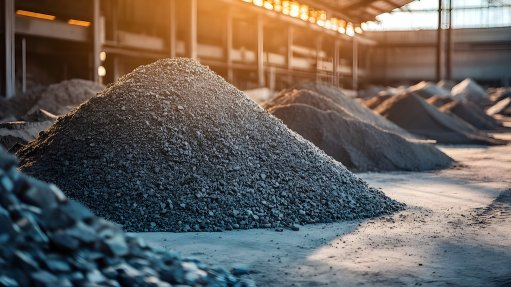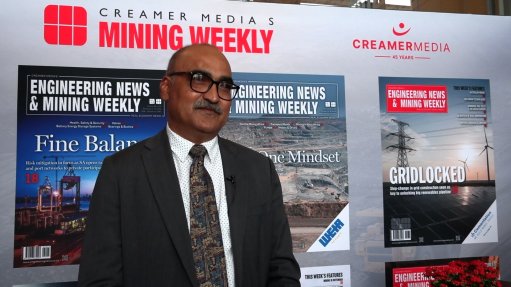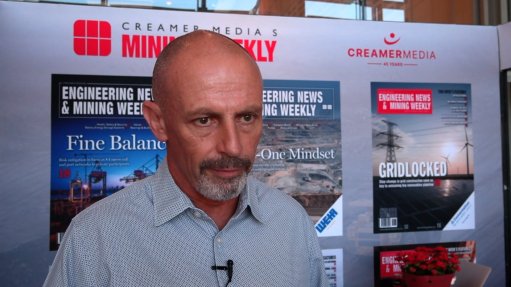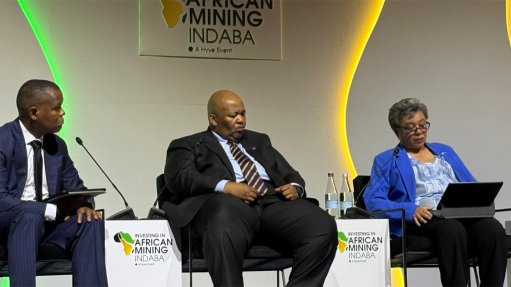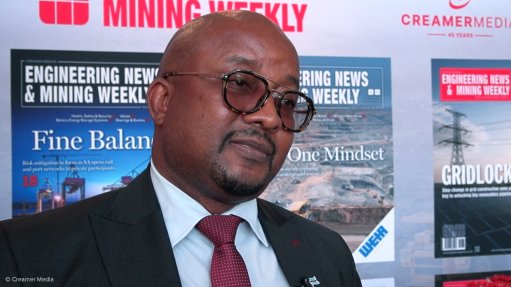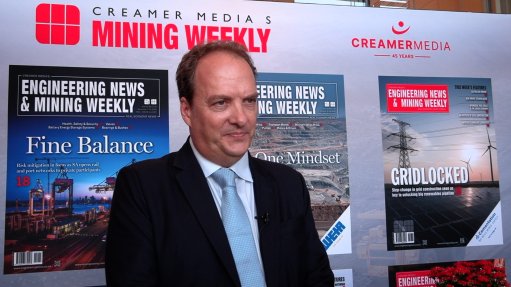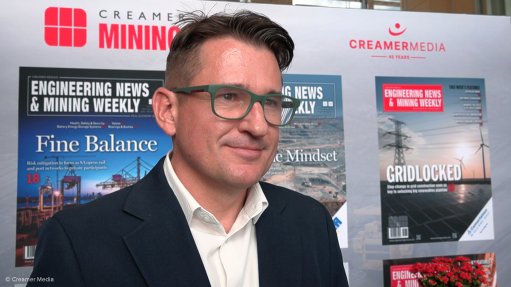The era of BESS has arrived and mines are taking notice
Written by Lance Dickerson
Businesses across sectors in sub-Saharan Africa are facing energy challenges that significantly affect their ability to trade. Unreliable infrastructure, and in some instances insecure power supply, means that energy security cannot be taken for granted.
Mining is no different. It requires a dependable, constant and reliable supply of electricity to power operations and ensure the safety of workers. This means that mines must invest in back-up energy. Factor in the growing pressure from around the world to decarbonise their operations, and it becomes immediately evident that big, dirty – and lest we mention expensive-to-run – diesel generators are no longer a long-term, viable option for the mining sector. Utility energy costs are rising while the cost of generating renewable power is decreasing, and so mines having some degree of control over their own power generation and investing in energy storage makes both strategic and environmental sense.
As a result, there has been a marked increase in interest across sectors, and from mines in particular, around the potential for battery energy storage systems (BESS). BESS applications in the mining sector go beyond merely “backup power”, although that is, at its core, the primary appeal of the technology. At its simplest, BESS technology enables mines to store excess energy, either from the grid or generated from renewable sources, such as solar panels, during periods of low demand. Large banks of batteries are charged with surplus energy and then discharged when needed.
This stored energy can be used to supplement power supply during peak operating periods or when there are power cuts or when environmental factors mean solar energy generation is low or non-existent (such as overcast conditions or during the night). This is particularly useful for mines operating in remote locations with little to no reliable infrastructure.
Beyond this, a BESS installation fills in as an emergency power source, ensuring that critical mining operations can continue without interruption. The backup power provided by BESS can be crucial for safety systems, ventilation and other essential machinery that must remain operational at all times.
However, where BESS at scale becomes even more attractive is its application in load balancing. Load balancing involves distributing the energy load across different times to avoid overloading the electrical grid. BESS helps by providing energy during peak demand periods, which reduces the strain on the grid. In a country and region beset with infrastructural challenges, mines can proactively help to prevent the regional grid from becoming overwhelmed.
Turning the lens inwards somewhat, BESS can help stabilise the grid by absorbing and supplying power as and when needed to help mitigate against voltage fluctuations and to maintain a stable frequency on the grid. This is crucial for sensitive equipment that carries out critical functions. If there is a dip or sudden spike in power coming from the grid, a BESS installation can respond within milliseconds, either absorbing the excess power or by supplying power for operations.
However, working with the grid and to help protect the grid, is only one side of the coin. As alluded to already, mines are under enormous pressure to lower their carbon footprint, precisely because of the nature of mining. BESS is often integrated with renewable energy generation in the form of solar panels or wind turbines. Reducing reliance on the grid firstly, which as we know is coal-dominated, and on expensive and dirty diesel generators, reduces costs while helping mines reduce their environmental impact.
BESS technology can also have a measurable impact on a mine’s operations.
Reduced Downtime: By providing a reliable power supply, BESS can minimise downtime that is otherwise inevitable with power outages, grid instability or mechanical issues with generators. BESS fits into the productivity picture by ensuring operations continue uninterrupted.
Cost Savings: BESS reduces the need for more expensive diesel generators. By using stored renewable energy, mines can achieve significant savings on fuel and other operational expenses.
Lower maintenance costs: If a mine can ensure a stable power supply it can ensure that expensive equipment operates optimally, reducing wear and tear and extending the lifespan of massively expensive assets.
Resource conservation: Efficient energy management through BESS installations will reduce the overall energy consumption of mining operations, contributing to resource conservation.
Perhaps one of the most critical elements for mining companies to consider when investing in BESS installations is the issue of support. Mining, by its very nature, demands very quick turnaround times if something goes wrong. This means that local support is crucial.
Local support means that mines will not have to wait weeks, or even months, for technicians to fly in from overseas to address issues with their modular systems. Local support, provided on locally assembled and quality assured batteries, ensures rapid turnaround times. In addition to this, mines also have the opportunity to work with suppliers who design bespoke solutions in addition to modular setups with value-added services, such as remote real-time battery monitoring and remote access and control, which enables remote shutdown if needed. Much like the importance of local support, local firmware and hardware components mean mines will not be at the mercy of international supply chains and issue resolution pipelines.
The era of BESS has arrived because backup energy is non-negotiable and mines need to reduce their carbon footprint. As we always say at REVOV, thinking about the environment is not a luxury or a box-ticking exercise. It is an existential imperative. Ensuring energy security while walking the journey of the just energy transition does not just make commercial sense, it is the right thing to do.
- Dickerson is the co-founder and MD of REVOV, a supplier of lithium iron phosphate batteries and BESS design, installation and management partner.
Article Enquiry
Email Article
Save Article
Feedback
To advertise email advertising@creamermedia.co.za or click here
Press Office
Announcements
What's On
Subscribe to improve your user experience...
Option 1 (equivalent of R125 a month):
Receive a weekly copy of Creamer Media's Engineering News & Mining Weekly magazine
(print copy for those in South Africa and e-magazine for those outside of South Africa)
Receive daily email newsletters
Access to full search results
Access archive of magazine back copies
Access to Projects in Progress
Access to ONE Research Report of your choice in PDF format
Option 2 (equivalent of R375 a month):
All benefits from Option 1
PLUS
Access to Creamer Media's Research Channel Africa for ALL Research Reports, in PDF format, on various industrial and mining sectors
including Electricity; Water; Energy Transition; Hydrogen; Roads, Rail and Ports; Coal; Gold; Platinum; Battery Metals; etc.
Already a subscriber?
Forgotten your password?
Receive weekly copy of Creamer Media's Engineering News & Mining Weekly magazine (print copy for those in South Africa and e-magazine for those outside of South Africa)
➕
Recieve daily email newsletters
➕
Access to full search results
➕
Access archive of magazine back copies
➕
Access to Projects in Progress
➕
Access to ONE Research Report of your choice in PDF format
RESEARCH CHANNEL AFRICA
R4500 (equivalent of R375 a month)
SUBSCRIBEAll benefits from Option 1
➕
Access to Creamer Media's Research Channel Africa for ALL Research Reports on various industrial and mining sectors, in PDF format, including on:
Electricity
➕
Water
➕
Energy Transition
➕
Hydrogen
➕
Roads, Rail and Ports
➕
Coal
➕
Gold
➕
Platinum
➕
Battery Metals
➕
etc.
Receive all benefits from Option 1 or Option 2 delivered to numerous people at your company
➕
Multiple User names and Passwords for simultaneous log-ins
➕
Intranet integration access to all in your organisation



